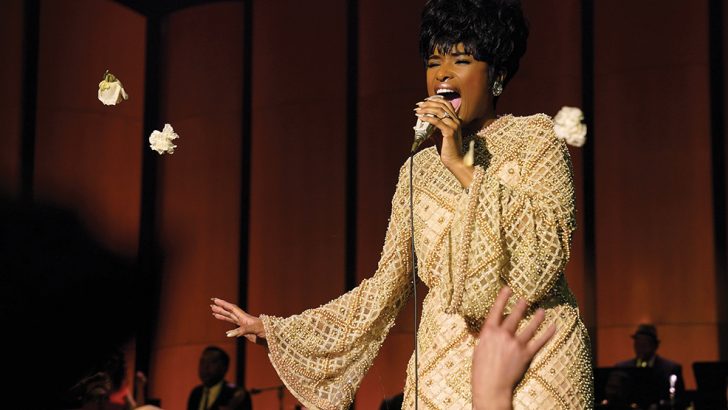This seems to be women’s month.
Annette is a musical romance about a couple who have a ‘puppet’ daughter with an unusual gift – she can sing in her mother’s voice. Rose Plays Julie has a veterinary student looking for the mother who put her up for adoption years ago.
Gunpowder Milkshake features three generations of female assassins joining forces to protect a young girl from her enemies. Herself has a young woman escaping an abusive husband and trying to build a new life away from him.
Jennifer Hudson plays the legendary soul singer Aretha Franklin in Respect, a biopic of the soul singer who died in 2018. She personally handpicked Hudson to play her, telling her she’d win an Oscar in the part. Franklin lived a life and a half in her 76 years, first exercising her vocal chords in her father’s church choir.
Yesteryear
What about women from yesteryear? Bette Davis is one of the most famous actresses in film history. Her 1940s classic Now, Voyager has been re-released on Mubi. It’s one of those films you can watch over and over again – even to watch Paul Henreid lighting two cigarettes at the one time for her.
We shouldn’t see it as a typical Davis vehicle. She specialised in playing difficult women like Margot Channing in All About Eve – and traumatised ones like the title character of What Ever Happened to Baby Jane. A romantic role like this was untypical.
She never cared how she looked. “I have eyes like a bullfrog,” she said, “and a neck like an ostrich. You have to be good to survive with that kind of equipment.”
A woman’s liberationist before the term was coined, she paved the way for a generation of women who wanted to be evaluated for acting ability rather than their vital statistics.
Contracts
She shattered the ‘glass ceiling’ that kept them in dead end contracts. Olivia de Havilland usually gets the credit for this (she won a famous law case over it) but Bette did her bit too. Her battle against Jack Warner failed but it paved the way for others to break away from the stranglehold of the major studios.
She’s still an icon today. Who can forget the way she croaked “What a dump!” in Beyond the Forest. Even better was her putdown to a beau in Cabin in the Cotton: “I’d like ta kiss ye but I just washed my hair!”
Moving away from the “gentle sex”, Father of the Cyborgs is a documentary based on a 1990s doctor who enabled a paralysed man to operate a computer by planting electrodes in his brain. Dubbed the ‘Alexander Graham Bell’ of the decade, Phil Kennedy went on to experiment on his own brain with near-disastrous results.
His research caused a lot of controversy around moral issues like eugenics, genomics, neuro-ethics and psychological autonomy. It provides food for thought for specialists in the field – if not the man in the street.


 Aubrey Malone
Aubrey Malone Jennifer Hudson as Aretha Franklin in the biopic, ‘Respect’.
Jennifer Hudson as Aretha Franklin in the biopic, ‘Respect’.